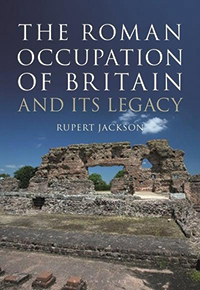*/

Classics and the law: coming full circle, Sir Rupert Jackson shares his cultural life and times
In this series individuals are asked to write about ‘cultural influences that have made them the person they are today’. That is no easy task. Barristers (and most judges are barristers at heart) don’t like talking about themselves. It is much easier to talk about things or other people. But anyway, here goes.
At Cambridge, before switching to law, I read classics for two years. That has been a major cultural influence on my life. It is a solid foundation for a career in the law. It is also an enduring source of pleasure. During the present lockdown, I am dipping into medieval Latin (Bede).
The notion that studying dead languages and the ancient world is good preparation for a legal career has recently come under attack. This is partly because it is seen as being élitist. It is not. The opposite is the case. A growing number of state schools, both primary and secondary, are teaching classics: Latin, Greek, ancient history and classical studies. Children from non-élite backgrounds can take advantage of this. Some proceed to A levels in classics and from there to good universities. Classics can be an engine of social mobility.
One remarkable feature of the ancient texts is the extent to which they talk about Britain. We even get a passing mention in Herodotus: ‘οὔτε νήσους οἶδα Κασσιτερίδας ἐούσας, ἐκ τῶν ὁ κασσίτερος ἡμῖν φοιτᾷ’ – ‘I do not know anything about the islands called Cassiterides, from which we get our tin’ (The Histories 3.115.1). There is a much fuller discussion of Britain in Dio Cassius, Tacitus, Ammianus Marcellinus and other classical authors.
These works have spurred me to make an in-depth study of Britain during the Roman period. That was a remarkable stage of our history. England and Wales emerged from being a mass of small fluid communities into something resembling a nation state. Over four centuries there was much intermarriage between the occupying army and the local population, best described as Romano-Britons. Admittedly we were a slave-based society and part of a massive Empire, first as a province, later as a ‘diocese’. This was hardly consonant with twenty-first century mores, but people saw things differently then.
The mindset of the ancient world was totally different to our own. To take just one example, blood sports in which participants killed each other was a popular form of light entertainment. You can see one amphitheatre where all this happened in the basement below London Guildhall. Even trainee gladiators killed one another, seemingly as a way of weeding out weaker students. A mosaic depicting a practical exercise, in which one trainee slaughters another, adorns the dining room floor of Bignor villa. Wealthy Romano-Britons could enjoy this jolly scene while having dinner.
In recent years I have spent much of my leisure time visiting Roman sites around the country, with long-suffering friends and family members. I have also spent a great deal of time reading archaeological reports, deciphering inscriptions and talking to the real experts, especially Professor Martin Millett at Cambridge. This was an eye-opening experience. At each stage, I have been compiling my own analysis. I have also been trying to condense the material into a clear narrative.
Carrying out a historical project brings immediate rewards. You are not just ‘reading history books’ or trailing round villas, looking at yet another hypocaust. You are visiting the sites with a purpose. And you are fitting what you see into an overall scheme: a sort of case plan. Just as studying classics provides a solid foundation for a career in the law – so 50 years practising law is ideal preparation for examining archaeological and literary evidence, then writing about ancient history.

The product of my labours to date is a new book published by Bloomsbury, The Roman Occupation of Britain and its Legacy.
This book tells the ‘story’ of Roman Britain from the late Iron Age through to AD 409. It can be hard work for anyone reading through many pages of historical narrative, even if the text is enlivened with a few Latin quotations. I have therefore introduced some humour when opportunities arose. I have also done my best to make the book readable and enjoyable.
All post-tax royalties from this book will go to Classics for All. That is a charity which promotes and funds the teaching of classics in state schools, with an emphasis on schools in areas of social deprivation. Over the last 10 years it has provided £1.35m funding for this purpose and has reached 970 state schools.

In this series individuals are asked to write about ‘cultural influences that have made them the person they are today’. That is no easy task. Barristers (and most judges are barristers at heart) don’t like talking about themselves. It is much easier to talk about things or other people. But anyway, here goes.
At Cambridge, before switching to law, I read classics for two years. That has been a major cultural influence on my life. It is a solid foundation for a career in the law. It is also an enduring source of pleasure. During the present lockdown, I am dipping into medieval Latin (Bede).
The notion that studying dead languages and the ancient world is good preparation for a legal career has recently come under attack. This is partly because it is seen as being élitist. It is not. The opposite is the case. A growing number of state schools, both primary and secondary, are teaching classics: Latin, Greek, ancient history and classical studies. Children from non-élite backgrounds can take advantage of this. Some proceed to A levels in classics and from there to good universities. Classics can be an engine of social mobility.
One remarkable feature of the ancient texts is the extent to which they talk about Britain. We even get a passing mention in Herodotus: ‘οὔτε νήσους οἶδα Κασσιτερίδας ἐούσας, ἐκ τῶν ὁ κασσίτερος ἡμῖν φοιτᾷ’ – ‘I do not know anything about the islands called Cassiterides, from which we get our tin’ (The Histories 3.115.1). There is a much fuller discussion of Britain in Dio Cassius, Tacitus, Ammianus Marcellinus and other classical authors.
These works have spurred me to make an in-depth study of Britain during the Roman period. That was a remarkable stage of our history. England and Wales emerged from being a mass of small fluid communities into something resembling a nation state. Over four centuries there was much intermarriage between the occupying army and the local population, best described as Romano-Britons. Admittedly we were a slave-based society and part of a massive Empire, first as a province, later as a ‘diocese’. This was hardly consonant with twenty-first century mores, but people saw things differently then.
The mindset of the ancient world was totally different to our own. To take just one example, blood sports in which participants killed each other was a popular form of light entertainment. You can see one amphitheatre where all this happened in the basement below London Guildhall. Even trainee gladiators killed one another, seemingly as a way of weeding out weaker students. A mosaic depicting a practical exercise, in which one trainee slaughters another, adorns the dining room floor of Bignor villa. Wealthy Romano-Britons could enjoy this jolly scene while having dinner.
In recent years I have spent much of my leisure time visiting Roman sites around the country, with long-suffering friends and family members. I have also spent a great deal of time reading archaeological reports, deciphering inscriptions and talking to the real experts, especially Professor Martin Millett at Cambridge. This was an eye-opening experience. At each stage, I have been compiling my own analysis. I have also been trying to condense the material into a clear narrative.
Carrying out a historical project brings immediate rewards. You are not just ‘reading history books’ or trailing round villas, looking at yet another hypocaust. You are visiting the sites with a purpose. And you are fitting what you see into an overall scheme: a sort of case plan. Just as studying classics provides a solid foundation for a career in the law – so 50 years practising law is ideal preparation for examining archaeological and literary evidence, then writing about ancient history.

The product of my labours to date is a new book published by Bloomsbury, The Roman Occupation of Britain and its Legacy.
This book tells the ‘story’ of Roman Britain from the late Iron Age through to AD 409. It can be hard work for anyone reading through many pages of historical narrative, even if the text is enlivened with a few Latin quotations. I have therefore introduced some humour when opportunities arose. I have also done my best to make the book readable and enjoyable.
All post-tax royalties from this book will go to Classics for All. That is a charity which promotes and funds the teaching of classics in state schools, with an emphasis on schools in areas of social deprivation. Over the last 10 years it has provided £1.35m funding for this purpose and has reached 970 state schools.
Classics and the law: coming full circle, Sir Rupert Jackson shares his cultural life and times


The Chair of the Bar sets out how the new government can restore the justice system
In the first of a new series, Louise Crush of Westgate Wealth considers the fundamental need for financial protection
Unlocking your aged debt to fund your tax in one easy step. By Philip N Bristow
Possibly, but many barristers are glad he did…
Mental health charity Mind BWW has received a £500 donation from drug, alcohol and DNA testing laboratory, AlphaBiolabs as part of its Giving Back campaign
The Institute of Neurotechnology & Law is thrilled to announce its inaugural essay competition
How to navigate open source evidence in an era of deepfakes. By Professor Yvonne McDermott Rees and Professor Alexa Koenig
Brie Stevens-Hoare KC and Lyndsey de Mestre KC take a look at the difficulties women encounter during the menopause, and offer some practical tips for individuals and chambers to make things easier
Sir Geoffrey Vos, Master of the Rolls and Head of Civil Justice since January 2021, is well known for his passion for access to justice and all things digital. Perhaps less widely known is the driven personality and wanderlust that lies behind this, as Anthony Inglese CB discovers
The Chair of the Bar sets out how the new government can restore the justice system
No-one should have to live in sub-standard accommodation, says Antony Hodari Solicitors. We are tackling the problem of bad housing with a two-pronged approach and act on behalf of tenants in both the civil and criminal courts